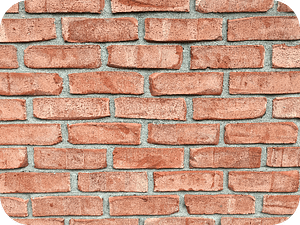Start with small habits if you want to achieve big things.
The development of self-care routines is difficult for many people since it appears to be an impossible undertaking. This is due to the fact that many people believe they must drastically alter their way of life in order to be successful. Small adjustments, on the other hand, can have the same long-term advantages as major ones. What matters is that you’re making progress and making adjustments as you go along.
Self-care routines can’t be developed without microhabits.
What Are MicroHabits?

There are microhabits that may make a big difference in your life, even if they are little and manageable.
Making little changes every day can help you achieve your goals over time, which is the principle behind these routines.
How Do You Create a MicroHabit?
If your aim is to reduce weight, for example, you may begin by telling yourself that you will drink water every hour. This may seem little at first, but it might be the difference between success and failure in the long run.
It’s a tradition to set objectives or make significant resolutions at the beginning of the year. The grandiose resolutions are doomed to failure because they are motivated by feelings rather than facts. As an illustration, you may come across someone who claims that because they plan on losing weight in January, it’s appropriate to overindulge in December. They are doomed to fail if they continue thinking this way.
MicroHabits and a Solid Foundation
When you have lofty ambitions, it’s best to think like a stonemason. The stonemason’s role is to use a certain kind of rock to create a floor-to-ceiling fireplace. They have a clear objective in mind, and in order to get there, they must plan and place each stone with precision.
You should aim for lofty aspirations, sometimes known as “hairy audacious” ambitions. You must, however, break it down into manageable chunks and make modest adjustments to your routines as you go. They’re known as micro habits since they’re made up of tiny, more manageable alterations.
Martial Arts and MicroHabits
To illustrate, let’s take a look at another example of how micro habits work. Any martial arts student who is serious about attaining a black belt must form excellent habits while training. To make things easier the next day, have the person start putting together their outfit the night before. This implies that it should be cleaned and folded before being packed in the kit bag. They’d then include whatever else they’ll need for the class the following day.
The student would do some stretching at home in the hour leading up to class. Instead of stretching at the beginning of class, students might benefit from this. Before sparring, they should spend 10 minutes training their hands by stretching and hitting them.
It is through the development of small habits that the larger habit of turning up prepared and ready to work on the next belt level may be formed.
Work on creating microhabit patterns of behaviour

Your initial micro habit should be to become aware of the rise and fall of your chest with each exhalation. You just pay attention to the pace and direction at which the air enters your lungs. Watch your chest and stomach grow as you inhale, then contract as you exhale the air out of your lungs. Simply doing this micro habit for a few days before adding another one may be immensely soothing.
In other words, your micro habits should be so minute that the idea of not doing anything never even occurs to you. It’s a sign that you need to alter and reduce the size of your micro habit if you’re finding reasons not to do it. Make a practise of doing something at the same time every day. The breathing exercise used in meditation may be done in your study every night at 10 p.m.
A MicroHabit of Keeping Track (of your MicroHabits!)

It’s fine to be motivated, but don’t go overboard and begin doubling down on your micro behaviours; else, you’ll just give up. When you push yourself too hard to meet your goals, you’ll become overwhelmed and have to start all over again.
Getting someone to hold you responsible for your daily micro habit is a great way to keep on track. Your everyday routine may be so hectic that it’s easy to overlook the micro habit until someone points it out to you. It’s always best to keep on track, no matter what it takes.
Summary
Changing one’s lifestyle can be difficult for many individuals due to the time and effort required, but many people fail to grasp that it can be as easy as deciding to approach things in a different way. These little changes allow people to progressively better themselves and their lives without feeling overwhelmed by the prospect of making a significant change all at once. They begin with minor goals and work their way up to more challenging ones. Why not start today!


